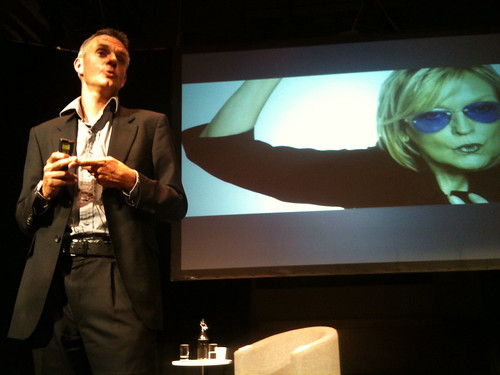Annie Nightingale didn’t only kick down doors in radio – she held them open
Annie Nightingale #AnnieNightingale

When Annie Nightingale, who has died aged 83, first approached the BBC in the hope of getting on the radio, she was instantly rebuffed. Her qualifications were inarguable: as a young journalist working in local news in the early 1960s, she had interviewed the Beatles, and had gone on to host the pop culture show That’s for Me, where she booked then little-known bands such as the Yardbirds, and had appeared on the Friday night rock and pop series Ready Steady Go! But when she met BBC bosses about hosting her own radio show, she was told her voice was too high and wouldn’t carry, that she didn’t have sufficient authority, and – preposterously – that disc jockeys were “husband substitutes” for listening housewives and that a female voice would kill the fantasy.
It wasn’t the first time Nightingale had been turned away on the basis of not being a man. Prior to banging on the doors of the BBC, she had tried get a spot on Radio Caroline, the pirate radio station which launched the careers of Tony Blackburn, Johnnie Walker and Dave Lee Travis, and was housed on a boat that she could see bobbing about in the sea from her second-floor flat in Brighton. She was perfect fit for the station: a music nerd with bottomless knowledge, enthusiasm and contacts. But, as she later told an interviewer, “I discovered the doors were very firmly bolted and locked and barred. There were to be no women.”
It’s a measure of Nightingale’s singular determination that, when it came to the BBC, she wouldn’t take no for an answer, using her magazine columns to call out the corporation’s ludicrous gender bias. Three years after she first approached them, Radio 1 capitulated and gave her a six-programme trial in 1970, followed by a permanent slot. Not for nothing was she known as the first lady of radio; Nightingale was the first woman in Britain to be awarded her own radio show (it took the station another 12 years to hire another) and would become the network’s longest-serving presenter.
With Don Letts in 2015. Photograph: Richard Young/REX/Shutterstock
Nightingale was a pioneer, then, and a tireless music enthusiast who had little interest in fame (when she landed the Radio 1 job, she asked to be on in the evenings, all the better to play whichever records took her fancy). But, unlike so many of her male counterparts, she refused to become a gatekeeper. Nightingale didn’t just kick open the broadcasting doors, she consciously wedged them open and invited others to join her. Janice Long and Lauren Laverne are among the radio DJs to have acknowledged their debt to her.
I met Nightingale twice, once to talk to her about her memoir, Hey Hi Hello, and again when we did a live interview in front of a student audience. Like the rock star of radio she was, she kept her sunglasses on and let the anecdotes pour forth. Yet it was also in keeping with her generous reputation that she stayed long after the talk was over to chat to students one-to-one, blithely handing out her phone number to those who hoped to follow in her footsteps.
Nightingale’s musical connections were remarkable – along with the Beatles, she interviewed Keith Moon, Bob Marley, Dusty Springfield, Marc Bolan, Malcolm McLaren and David Bowie. She saw herself not as a music critic but a fan and was dismissive of the old Lester Bangs edict that you shouldn’t be friends with bands. Having been welcomed into the Beatles’ inner sanctum, she knew about the relationship between John Lennon and Yoko Ono long before they went public with it, but decided to ignore her journalistic impulses and kept stumm.
Like her one-time contemporary John Peel, Nightingale was held in high regard by musicians of all stripes who would deluge her with demos in the hope of getting her seal of approval and, if possible, some airtime on her show. Such was her dedication to championing new sounds that she continued to do her job into her 80s on Radio 1, rather than moving her show on to the more sedate sister station, Radio 2 (she did, however, present one-off shows and documentaries on the station, and on 6 Music). Unlike many of her peers, she never fell into the trap of catering only to her age and background, remaining as just as excited about new music in her 80s as she was in her teens and 20s. Her success as a broadcaster lay in her ability to move with the times and understand the tastes and mindsets of successive generations – because they were her own tastes, purely passionate and devoid of snark or irony. In an age of algorithms on streaming services second guessing what we like, Nightingale was more valuable than ever, someone naturally resistant to demographic profiling and predictors of taste.
Nightingale may have been treated shabbily by the BBC at the start of her career, but she quickly grew to love the place and to see radio as the greatest of all broadcasting mediums. As she told me, “People want the voice in between the music. To me a good broadcaster will be exactly the same when you meet them on the street as they are on the radio. I try to be honest about who I am and the music I like.”